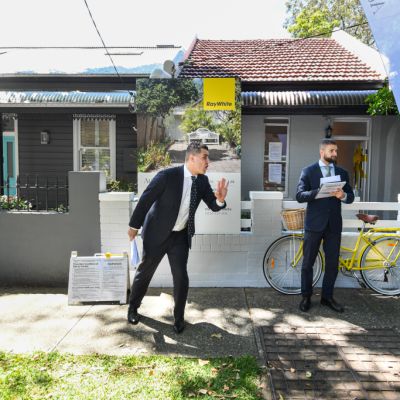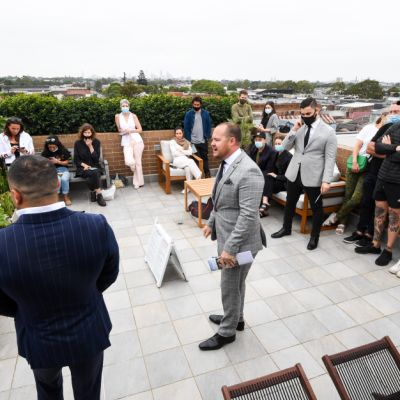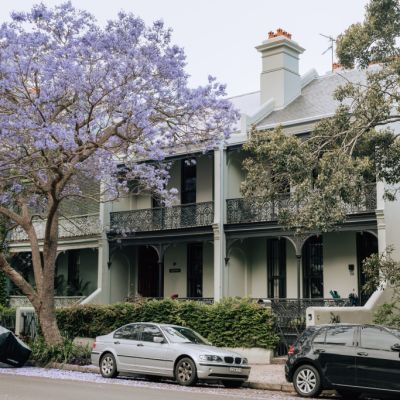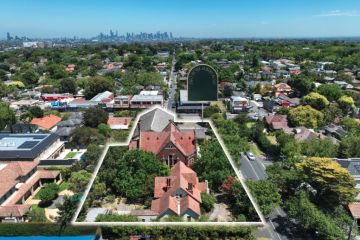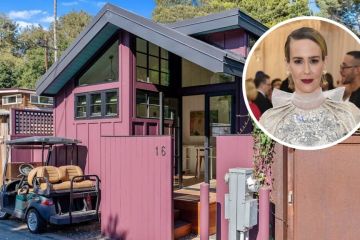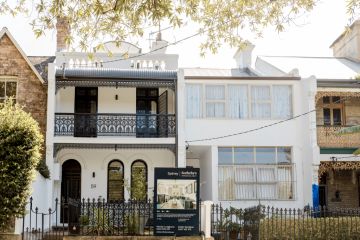The ‘bank’ first-home buyers are relying on to keep up with prices

When Sydney first-home buyer Josh Kidd picked up the keys to his new apartment this week, he knew it would not have been possible without financial help from his family.
The 25-year-old had been saving for several years, but it was a top-up of additional funds from the sale of a family property that helped him hit a 20 per cent deposit for the inner west unit he purchased in October.

“I had been saving the deposit for quite a number of years, that [extra money] was able to knock it over the edge,” Mr Kidd said.
“There’s no way I would have been able to do it without mum and dad’s help, and I don’t know many people in the Sydney market, certainly among my peers and friends, who would be able to.”
He’s not alone, with agents and mortgage brokers reporting a growing number of first-home buyers, and even second-home buyers, are turning to help from the bank of mum and dad as they struggle to keep up with rapidly rising property prices.
Melbourne buyer’s agent Julie DeBondt-Barke, founding director of Property Home Base, said getting help from the bank of mum and dad had been very rare five years ago, but was now what about half of her clients were relying on to get into the property market.
“It’s mostly cash gifts … $100,000 is not out of the norm now,” she said, though added that about half of those receiving cash from their parents intended to pay it back.
Melbourne mortgage broker Will Unkles, director of 40Forty Finance, said the number of first-home buyer clients getting financial help from parents had probably doubled in the past three years, with up to two-thirds of his clients now receiving some help – as well as a growing number of upsizers.
The bulk of such clients, predominantly in the inner east and north, were receiving cash gifts, averaging from about $50,000 to $70,000, he said, with about 20 per cent getting more than $100,000. For upsizers, some parents were offering up to $200,000 to $500,000 of ‘early inheritance’ to help get their children and grandchildren into a better home or location.
Sydney-based buyer’s agent Rich Harvey, chief executive of Propertybuyer, had also observed a similar trend, noting one couple he helped upsize to a family home in the city’s north had reluctantly turned to their parents for a $250,000 loan to keep up with rapid price growth.
He estimated about a third of the company’s first-home buyer clients were getting help from parents via gifts and loans ranging from $100,000 to $250,000 in some of Sydney’s prime markets – and in one instance saw a Mosman buyer ask her parents for an extra $100,000 on the auction floor, when the bidding looked to be getting away from her.
The power of the bank of mum and dad was recently acknowledged by Reserve Bank assistant governor Luci Ellis, who last month told an inquiry into housing affordability those whose parents owned homes could become homeowners themselves relatively easily, while those whose parents rented were “going to be in a much more difficult situation to actually get into housing themselves”.
While the rise of the bank of mum and dad helped individual first-home buyers, it had created an inequitable situation and was potentially cementing longer-term wealth inequality, said AMP Capital chief economist Shane Oliver.
“It’s been a growing issue for several years now because the time required to save for a deposit is getting longer and longer,” Dr Oliver said.
“I still think most young people would prefer to avoid relying on mum and dad … but they’re having too.”
There was a logic to parents wanting to pass on some of the gains they had benefited from as the property market surged over the past two decades, Dr Oliver said, but the problem was that it was not an equitable way of managing poor housing affordability.
“Not only have you got to study hard and get a good job [to be able to buy a home] but you’ve got to have well-off parents,” he said.
While the federal government’s First Home Loan Deposit Scheme was an option for those who could not rely on help from their family to get into the market, places were limited, and did leave first-home buyers with a greater level of debt, Dr Oliver said.
Demand for the scheme far outstripped the available spots, said David Hyman, chief executive of Lendi Group, the parent company of Aussie Home Loans – which has seen a 71 per cent jump in guarantor loans over the past six financial years. Cash gifts from parents, while much harder to track, had also been on the rise in recent years.

“A lot of people have made money on property over the past couple of years and have the ability to take that money and help their children get into the market,” he said.
While many parents who can afford to help opt to gift sums of cash, parents can alternatively act as guarantors by using the equity in their own home as security when their children do not have enough saved up for deposit.
“You can only get that if your parents or relatives own a home, so there is a large portion of the market there that don’t have that option available,” Mr Hyman said.

Mr Kidd, who bought a two-bedroom unit in Dulwich Hill, had planned to ask his parents to go guarantor to avoid taking out lenders mortgage insurance, but when that wasn’t an option with his lender, he was able to access funds the family had from selling his late grandmother’s house – lifting his deposit from between 10 and 15 per cent to 20.
He purchased through selling agent Jason Ballo, of Belle Property Annandale, who has seen a rise in support from the bank of mum and dad. With entry-level homes in the area going for between $1 million to $1.5 million, parents were stepping in to help children stretch their budgets.
He was also seeing more parents and older first-home buyers looking to pool their money together to secure a larger multi-generational home.
While Mr Kidd is grateful for the help he had received, he felt the government needed to do more to support first-home buyers, noting friends had also been reliant on help from their parents to buy and that the price caps on government assistance did not reflect the Sydney market’s rapid growth.
We recommend
We thought you might like
States
Capital Cities
Capital Cities - Rentals
Popular Areas
Allhomes
More
